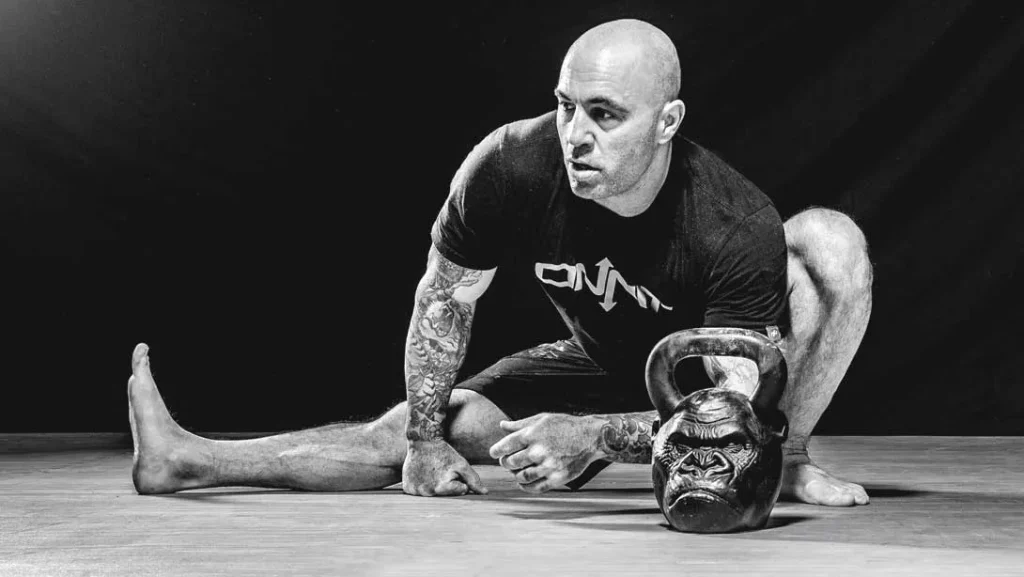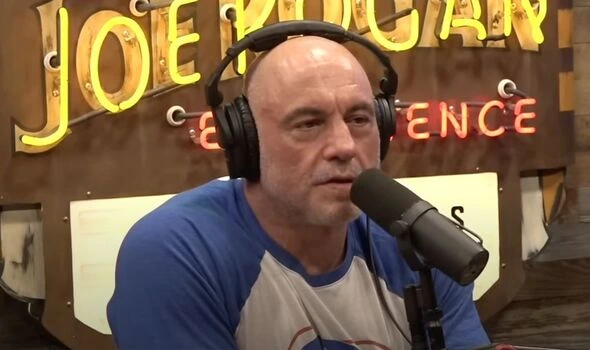
Introduction — The Illusion of Fitness “Truth”
The modern fitness world looks glamorous. Perfect abs. Glowing skin. Shredded influencers swear by their secret routine or miracle supplement. Every scroll through Instagram, TikTok, or YouTube shows a flood of sculpted bodies promising “you can have this too — just buy my program.”
But what if most of it is fake?
Behind the filters, sponsored supplements, and edited videos lies a dark underbelly of the fitness industry — one driven by money, manipulation, and misinformation. And one person who unintentionally became the torchbearer in exposing this illusion is Joe Rogan.
Over time, Rogan’s massive platform — The Joe Rogan Experience — became a space where scientists, fitness experts, and whistleblowers discussed uncomfortable truths about modern fitness culture. From steroid abuse and fake endorsements to misleading supplement marketing, Rogan’s influence has peeled back the glossy surface of an industry built on half-truths and greed.
This isn’t just about a podcast episode — it’s about a movement toward accountability in fitness, and the fall of some of the biggest scams of all time.
The Hidden Empire Behind Fitness Scams
The Billion-Dollar Business of False Hope
The global fitness industry generates hundreds of billions of dollars annually — from protein powders and “fat burners” to online coaching and gym apparel. But a shocking portion of that profit doesn’t come from genuine transformation — it comes from selling dreams.
Scams thrive in this space because they sell what people desperately want:
- Fast results.
- Guaranteed progress.
- Minimal effort.
- Celebrity-like aesthetics.
People crave shortcuts. And marketers have mastered the art of selling them.
The Blueprint of Every Fitness Scam
Every major scam in this industry follows the same script:
- Big Promise: “Transform your body in 30 days!”
- Fake Authority: “As seen on major podcasts” or “endorsed by top athletes.”
- False Proof: Staged before-and-after photos or fake testimonials.
- Urgency Pressure: “Offer expires in 24 hours!”
- Upsell Trap: “Join our VIP plan” or “unlock the secret phase.”
It’s not a new con — it’s just been digitally optimized for social media.
Why It’s So Easy to Get Away With
Unlike pharmaceuticals or medical treatments, most fitness products operate in a regulatory gray zone. As long as they say, “This is not medical advice”, they’re untouchable. Add in celebrity influencers and a flood of pseudoscience, and the line between truth and fiction blurs completely.
And this is where Joe Rogan enters the story — because his platform started amplifying people who refused to play along.

Joe Rogan — From Comedian to Fitness Truth Catalyst
Joe Rogan is not a doctor. He’s not a traditional scientist. But he is one of the most influential voices on the planet. Through The Joe Rogan Experience, he’s interviewed top athletes, researchers, nutritionists, and even whistleblowers who’ve called out the deception in the fitness world.
What makes Rogan powerful isn’t expertise — it’s curiosity and reach.
He asks questions millions are afraid to ask:
- “Why are all these influencers shredded but lying about steroids?”
- “Do supplements really work, or is it just marketing?”
- “How are fake endorsements even legal?”
That kind of honesty shook an industry that thrives on image and illusion.

The Fitness Industry’s Greatest Illusion
To understand the biggest scam of all time, you must first see the pattern: fitness has been commercialized into entertainment.
Millions of people aren’t buying health — they’re buying the illusion of it.
The real scam isn’t a single product or company. It’s an entire system designed to:
- Monetize insecurity.
- Exploit misinformation.
- Sell identity as transformation.
This system tells you that if you don’t have abs, glowing skin, or a perfect body, you’re lazy — and the only cure is their exclusive product or plan.
Rogan’s platform began chipping away at this lie, exposing the contradictions between what influencers say and what they actually do.

The V Shred Scandal — When Marketing Imitated Reality
One of the most infamous modern examples of deception was the V Shred controversy, where a major fitness brand allegedly created ads mimicking Joe Rogan’s podcast set — microphones, lighting, background — everything designed to make people believe Rogan had endorsed them.
Millions of viewers fell for it.
This was the perfect example of manufactured credibility — using Rogan’s recognizable aesthetic to imply trust, without his consent. The video didn’t say, “Joe Rogan recommends this,” but the visual language did the job.
The psychology was simple:
If it looks like Joe Rogan’s show, it must be legit.
That moment marked a turning point. Viewers started questioning fitness ads more critically, realizing that visual association can be as deceptive as verbal claims.
The Liver King Lie — When Raw Meat Met Raw Truth
Perhaps the most shocking case Rogan helped expose was The Liver King scandal — a modern Greek tragedy in gym shorts.
Brian Johnson, known as Liver King, built an empire promoting “ancestral living” — eating raw organs, rejecting modern medicine, and claiming to be 100% natural. His brand exploded across social media.
But then came the leak.
Emails revealed that Liver King was spending over $10,000 a month on steroids and growth hormones, all while telling his followers he was “natty.”
Rogan had already suspected it, discussing openly that “no one gets that big naturally.” When the truth emerged, it validated his skepticism and shook the internet.
Liver King eventually apologized, admitting he lied “to spread the message.” But the damage was done.
The scandal exposed:
- How powerful personal marketing is.
- How fitness culture rewards deception.
- How easily millions can be manipulated by aesthetics.
Rogan’s discussions on this case weren’t just entertained — they were educated. They helped people see that even the most convincing image could hide a mountain of lies.
The Anatomy of a Fitness Fraud
Fitness scams survive because they mix partial truths with bold lies. Here’s how they work:
Step 1: Create a Relatable Problem
“You’re tired, overweight, and don’t know where to start.”
Step 2: Present a Unique Secret
“We’ve discovered a hidden method that burns fat faster than cardio.”
Step 3: Add Science-Flavored Words
“Backed by studies showing mitochondrial activation through peptide synergy.”
Step 4: Borrow Credibility
Use fake celebrity quotes, or mimic popular media aesthetics (like Rogan’s setup).
Step 5: Close the Sale
“You only have 6 hours to grab this at 80% off!”
It’s psychological warfare disguised as self-help.
Rogan’s candid podcast discussions helped millions decode these patterns — breaking down why we fall for them and how to fight back.

Why People Keep Falling for Fitness Scams
Even after countless exposés, the scams keep coming. Why? Because they understand human psychology better than most health professionals.
The Promise of Speed
People want results fast. Scammers promise instant transformation while real fitness takes months or years.
The Illusion of Control
Scams offer formulas: “Follow my 3-step method.” Real health requires flexibility and discipline.
The Idol Effect
If someone looks good, we assume they know what they’re doing. But genetics, lighting, and even photo editing play bigger roles than most admit.
The Anti-Science Pitch
Scammers frame themselves as rebels — “They don’t want you to know this secret.” That line alone has sold millions of dollars in lies.
Rogan’s Platform — The Truth Amplifier
Rogan didn’t expose scams by naming and shaming — he did it by creating an environment where truth could breathe.
He invited scientists, trainers, doctors, and whistleblowers to discuss:
- Fake supplement marketing.
- Steroid culture in bodybuilding.
- Mental health pressures behind influencer fitness.
- The difference between evidence-based training and marketing hype.
He asked uncomfortable questions. He challenged pseudoscience. He admitted uncertainty when he wasn’t sure — a rare trait in an age of “gurus.”
That honesty, paired with his massive audience, turned Rogan’s platform into one of the most effective truth machines in modern fitness media.

The Psychology of Deception — How Fitness Lies Feel Like Truth
Emotional Storytelling
Scams use transformation stories to sell emotion — not data. “I was miserable until I found this method.” The moment you feel their pain, you lower your guard.
The Pseudo-Scientific Illusion
Throw in scientific words — cortisol, peptides, testosterone optimization — and people assume expertise.
Manufactured Trust
Using familiar setups (like Rogan’s podcast room) or influencer cameos tricks the brain into thinking “it must be real.”
Repetition Bias
If you see the same message across multiple platforms, you start to believe it’s credible. That’s not the truth — it’s marketing.
Rogan’s discussions often reveal how easily human bias and marketing psychology intertwine.
Real Fitness vs. Fake Fitness
Let’s separate reality from illusion:
| Real Fitness | Fake Fitness (Scam) |
| Takes time and effort | Promises fast, effortless results |
| Based on science | Based on emotions and sales |
| Focuses on health & performance | Focuses on aesthetics only |
| Transparent and accountable | Secretive and manipulative |
| Sustainable lifestyle | Temporary quick fix |
Rogan’s repeated discussions about recovery, nutrition, and discipline emphasize that fitness is a lifelong journey, not a one-month miracle.

The Ripple Effect — When Exposure Changes an Industry
After the Liver King scandal, after fake Rogan ads were called out, and after endless supplement claims were debunked, the industry started shifting:
- Consumers became skeptical.
- Influencers faced tougher questions.
- “Natural” claims began losing credibility.
- Transparency became trendy.
Ironically, Rogan didn’t start as a crusader — but by giving a microphone to truth-seekers, he became one of the loudest forces for authenticity in modern fitness.
How to Protect Yourself from Fitness Scams
You don’t need to be an expert to protect yourself — just apply these golden rules:
- Question Everything: If it sounds too good to be true, it is.
- Follow the Evidence, Not the Hype: Check if real studies back the claim.
- Watch for Fake Endorsements: Logos, podcast sets, or celebrity faces can be faked.
- Don’t Trust “Limited-Time Offers”: Scarcity is a pressure tactic.
- Avoid Secrecy: Any program that hides its process is hiding its truth.
- Look for Credentials: Is the person trained or certified, or just photogenic?
- Understand That Supplements Aren’t Magic: They’re minor tools, not miracles.

The Hard Truth: Fitness Doesn’t Need to Be Glamorous
Rogan’s approach — curiosity, skepticism, and brutal honesty — reminds us of something important: fitness isn’t about aesthetics, it’s about truth and consistency.
The best diet, workout, or supplement in the world won’t work without effort and honesty. The fitness industry sells illusions because illusions are profitable. Real fitness is boring: lifting weights, eating right, sleeping enough, and staying consistent.
But that’s also why it’s real.
The Future of Fitness — Transparency or Extinction
The exposure of scams by Rogan’s discussions has sparked a wave of “evidence-based influencers.” Trainers now emphasize science, honesty, and mental health. Audiences demand receipts — not just abs.
The future of fitness will belong to those who:
- Show their process openly.
- Admit when they use enhancements.
- Teach long-term habits instead of overnight transformations.
Anything less will crumble under scrutiny — because once people taste truth, they don’t go back to lies.

Final Thoughts — Joe Rogan’s Unintended Revolution
Joe Rogan didn’t set out to become a watchdog of the fitness world. He simply created a space for curiosity and debate. But in doing so, he ignited something far greater: a cultural awakening about how easily we’re misled by charisma and abs.
He exposed how the biggest fitness scam of all time wasn’t one company, but an entire mindset:
The belief that transformation can be bought.
Rogan helped millions rediscover what fitness should truly mean — honesty, evidence, and self-accountability.
In a world of filters and fake claims, that’s the real revolution.


